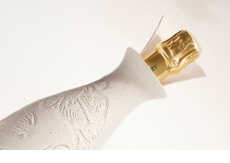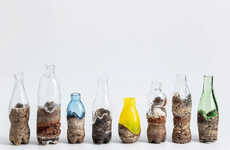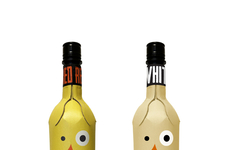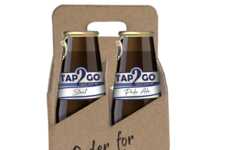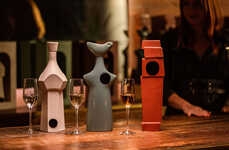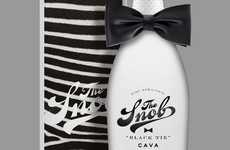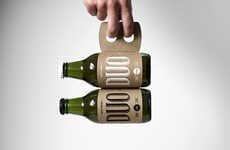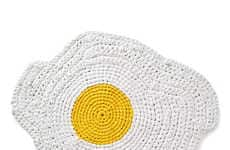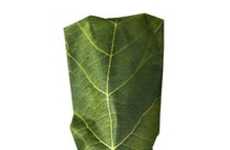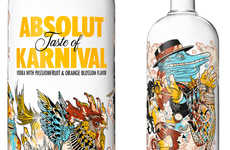
A Concrete Bottle Surface Covers Wine with an Unexpected Cloak
Amelia Roblin — May 9, 2013 — Marketing
References: rememberthelion & notcot.org
Depending on the product, glass, paper or plastic tend to make the most common containers. This Concrete Bottle Surface scheme is part of a brand identity overhaul that introduces a very popular material to a very unusual purpose.
Transparent glass flasks with a swing-top caps contain varieties of dark beer and red wine. You would usually expect to get a glimpse of the beverage inside; however, these vessels have been coated almost entirely with a thick and opaque substance. Taking dark charcoal and ashen shades, the material is actually a rough mixture of sand and cement with a matte and grainy texture.
Interestingly, Remember the Lion found a way to include paper labels in the design of Concrete Bottle Surface packaging. The rectangular stickers look untouched by the embossed construction material that surrounds them.
Transparent glass flasks with a swing-top caps contain varieties of dark beer and red wine. You would usually expect to get a glimpse of the beverage inside; however, these vessels have been coated almost entirely with a thick and opaque substance. Taking dark charcoal and ashen shades, the material is actually a rough mixture of sand and cement with a matte and grainy texture.
Interestingly, Remember the Lion found a way to include paper labels in the design of Concrete Bottle Surface packaging. The rectangular stickers look untouched by the embossed construction material that surrounds them.
Trend Themes
1. Cement-coated Packaging - Opportunity for disruptive innovation: Explore new ways to use cement as a coating material for packaging, offering a unique visual and tactile experience.
2. Brand Identity Overhaul - Opportunity for disruptive innovation: Rethink traditional packaging materials and designs to create a distinct brand image that stands out on the shelves.
3. Incorporating Unconventional Materials - Opportunity for disruptive innovation: Experiment with non-traditional materials like sand and cement to create packaging with a gritty and textured aesthetic.
Industry Implications
1. Packaging Industry - Opportunity for disruptive innovation: Explore new materials and designs to create unique packaging solutions that attract consumer attention and differentiate products.
2. Beverage Industry - Opportunity for disruptive innovation: Incorporate novel packaging concepts to create visually striking bottles and cans that enhance the overall drinking experience.
3. Design Industry - Opportunity for disruptive innovation: Collaborate with brands to develop innovative packaging designs that challenge traditional norms and create a lasting impression on consumers.
4.6
Score
Popularity
Activity
Freshness


